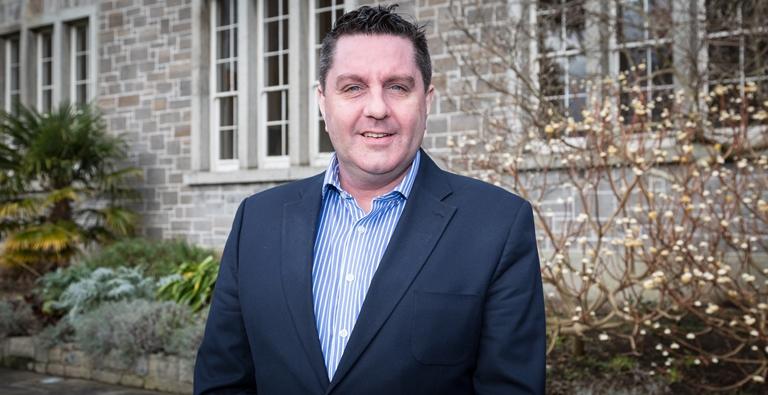

Spotlight on research: Tackling bullying with research
In this week's Spotlight on Research our interview is with Dr. James O'Higgins Norman, a Senior Lecturer in Sociology and Director of the National Anti-Bullying Research and Resource Centre (ABC) at DCU
Your research looks at bullying, particularly in school - this is an area of research that has been growing since the 1970s, what do we know about the impact of bullying in school?
“The effects of being bullied in school can be immediate – children don’t want to go to school, and the fearfulness around the repeated aggression of bullying can make it hard for them to concentrate on their work and to make friends. For some, bullying may also contribute to suicidal thoughts and in the longer term some children who were bullied at school can find it difficult to form relationships with people in adulthood, and they may feel isolated in society.”
How did you become interested in this area of research?
“When I was doing a PhD at University College London I became interested in the sociology of bullying, and how if young people perceive someone or something as different can lead to them feeling uncomfortable and can contribute to bullying. And indeed, we know from research that educational programmes that promote diversity tend to reduce bullying.”
One focus of your work is homophobic bullying in schools. What have you been finding in Ireland?
“Our most recent study on homophobic bullying in primary schools looked at how school principals understand and respond to that type of bullying. We found that in many cases primary school principals did not deem the use of homophobic language, or calling children names, as a form of bullying unless it got to a more pronounced level. Before that they thought of it as normal use of language by kids. This is worrying because we know from research that bullying takes different forms, and one of those is the use of homophobic terms. It also raises the issue that if teachers are not addressing the use of those homophobic terms, their silence could be interpreted by the children as a tacit form of approval.”
You are also interested in online bullying (cyberbullying) and harassment - what have you been finding?
Sometimes we conceive of cyberbullying as something that is ring-fenced in social media online and driven by strangers, but often people are cyberbullied by people they know, and this can be tackled. Our research among school students has found that the vast majority of cyberbullying is related to offline or real-time relationships or events that spill over into the internet and then back again into school. We have also discovered that most parents are very fearful of their own child being bullied online, but hardly ever conceive of the idea that their child could be cyberbullying someone else. Yet statistically we have found that a child is just as likely to be a cyberbully as to be cyberbullied. Linked to that, our nationwide studies found that parents tend to use the internet and social media widely but not in the same spaces or on the same social media platforms as their children, and they may assume that if the children aren’t telling them something is wrong then everything is fine.”
Is education key to reducing the levels and impact of bullying?
“Yes, our research shows that there is a big need for education to support parents in realising that their child may be a bully, and also to take a stronger lead in being aware of their children’s behaviours online. Schools have a really important role to play, but parents also need to recognise that sometimes the behaviours children engage in are learned. Parents often find it hard to take that perspective, but they need to be active participants.”
Has anything particularly surprised you along the way during your research into bullying?
"We recently completed a study on the implementation of the National Action Plan on Bullying by school principals and we found that about half of them have not appointed an antibullying co-ordinator in their school. It is surprising that such a basic step in a school response to tackling bullying has not been taken by principals. So we need to look at why this is and what further supports schools need to help them to tackle bullying."
Are new opportunities opening up for your research now thanks to DCU's Incorporation?
"Yes, as a result of Incorporation we have teamed up with colleagues in the Educational Disadvantage Research Centre to undertake research on bullying in schools that are in areas experiencing socio-economic inequalities, and we are looking forward to collaboration with other research centres in the Institute of Education."
